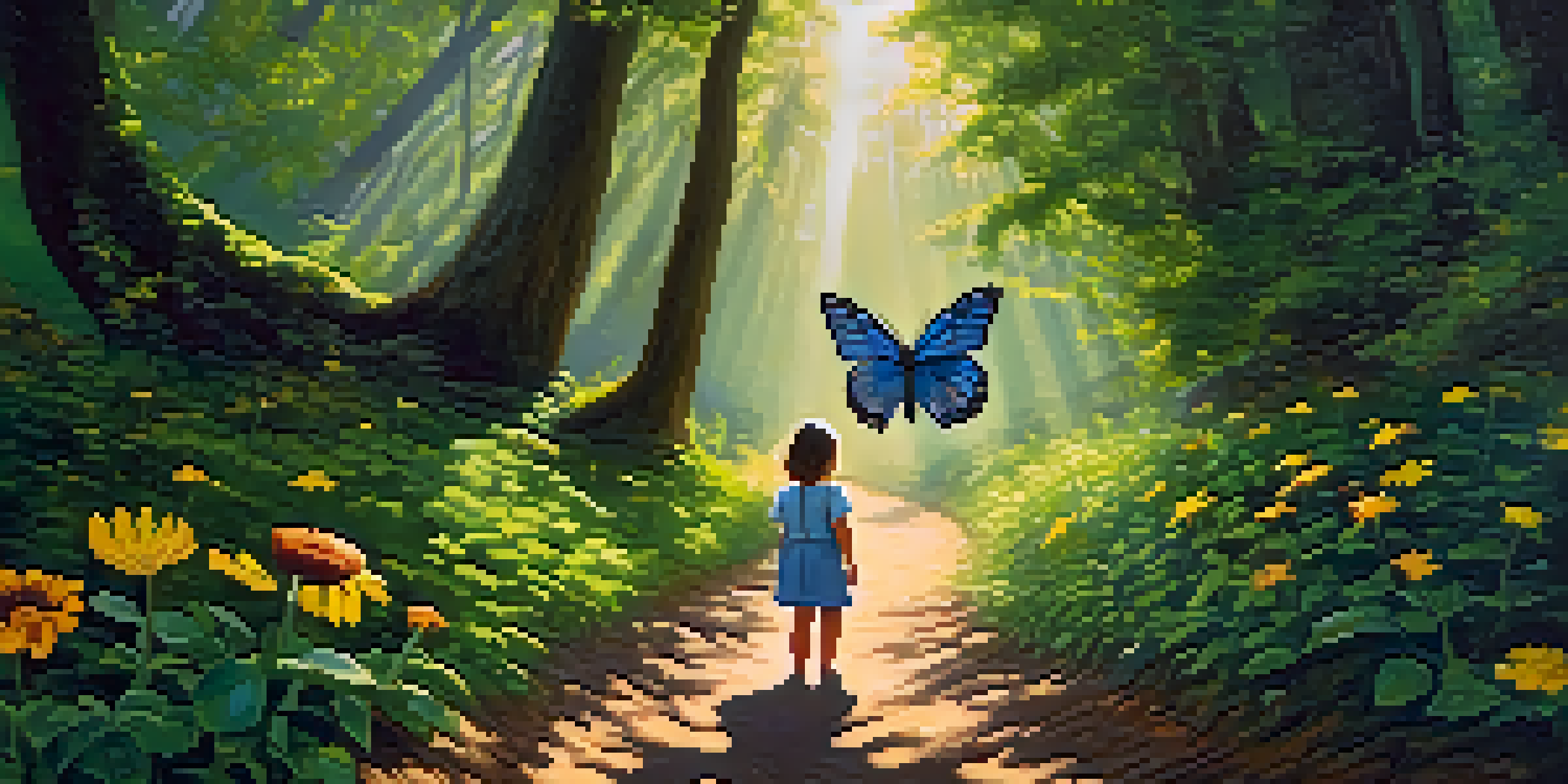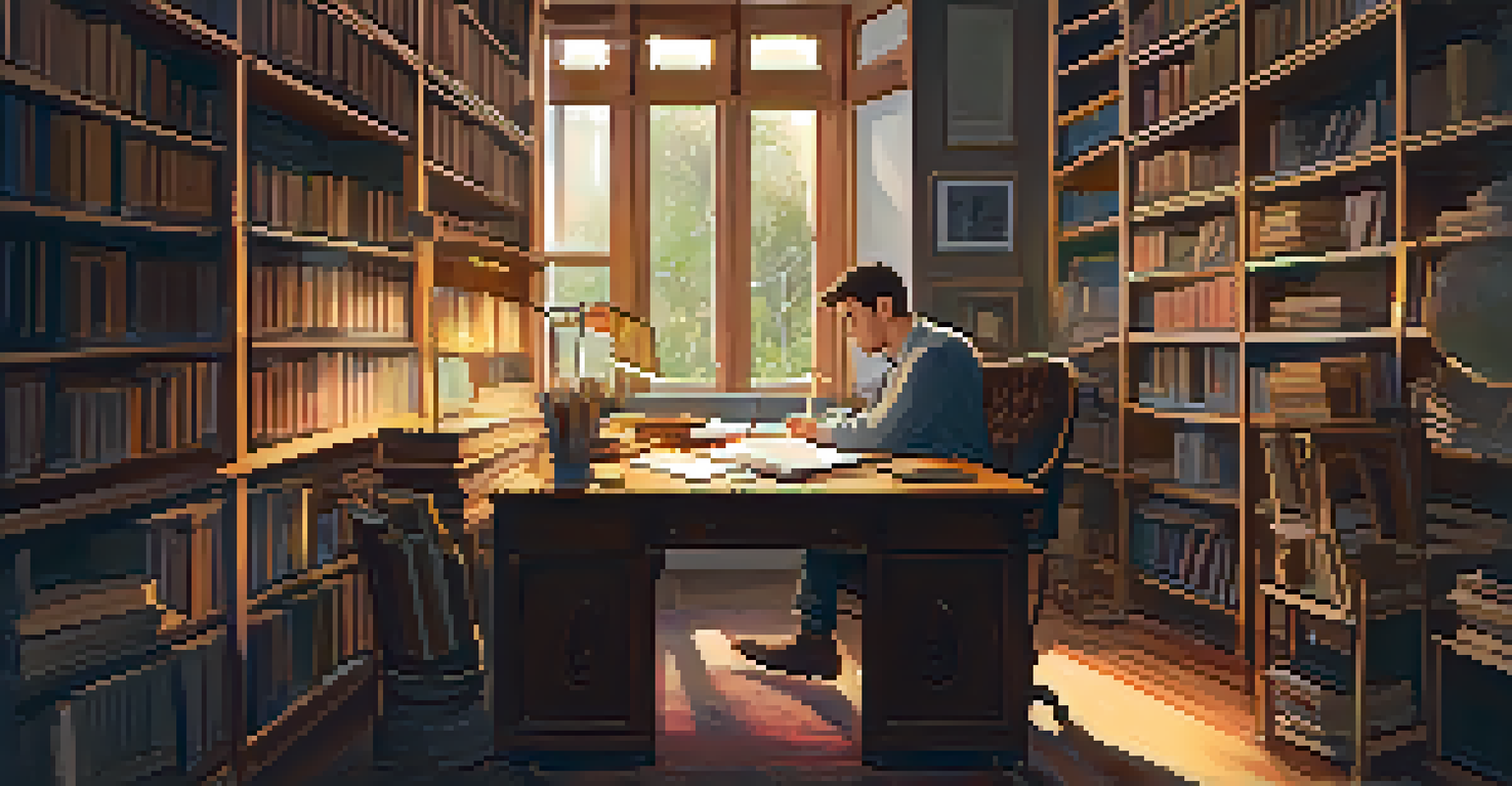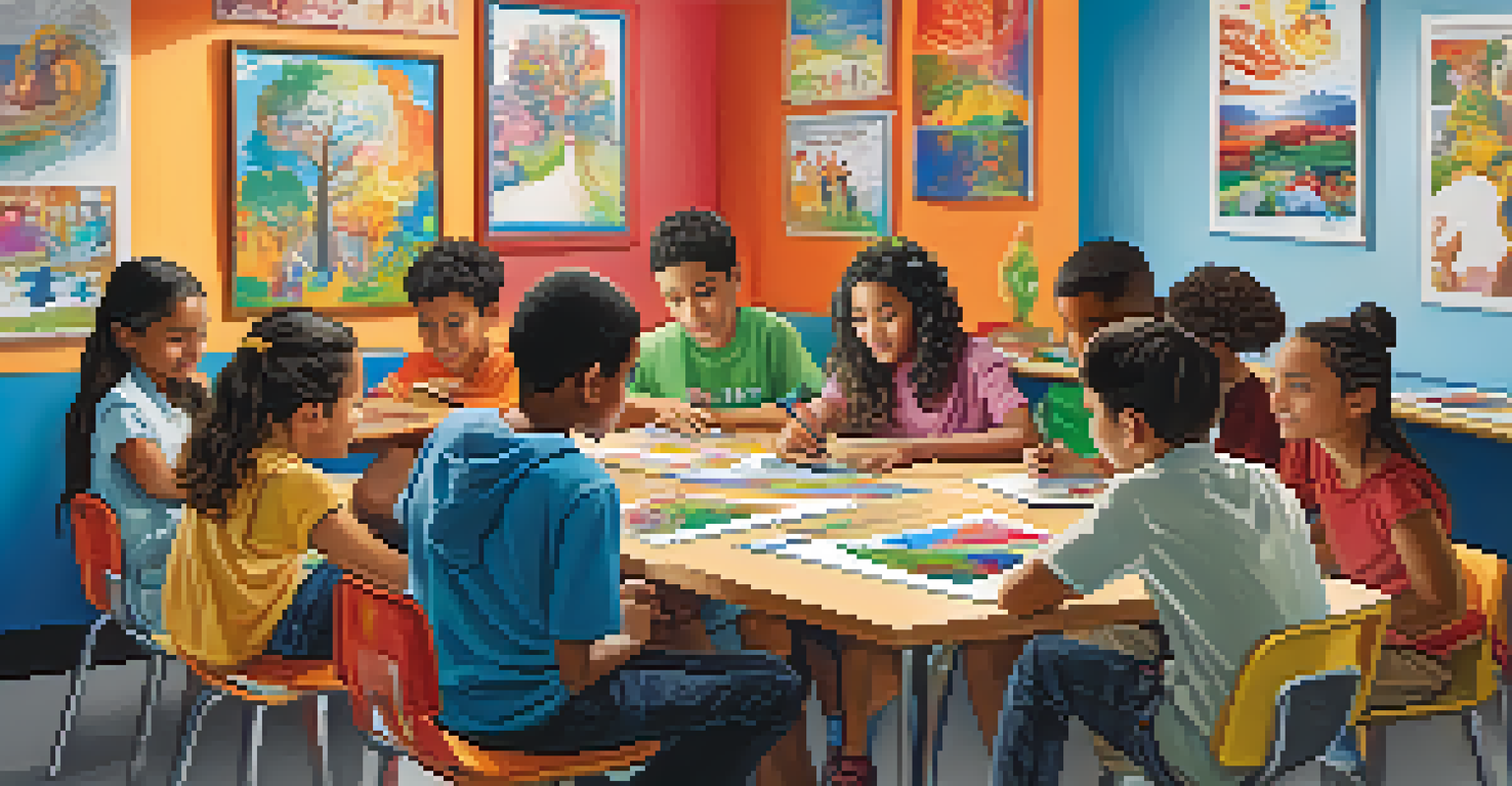The Value of Curiosity in Personal Development

Curiosity: The Catalyst for Personal Growth
Curiosity is a powerful force that drives us to explore and learn. It encourages us to ask questions, challenge assumptions, and seek out new experiences. When we embrace curiosity, we open ourselves to endless opportunities for personal development.
Curiosity is the engine of achievement.
Think of curiosity as a key that unlocks doors we didn't even know existed. Each question we ask, each new thing we learn, acts like a step on a staircase leading us to greater heights. This journey of discovery not only enriches our knowledge but also enhances our understanding of ourselves.
By nurturing our curiosity, we cultivate a mindset that welcomes change and growth. Instead of fearing the unknown, we begin to see it as a chance to expand our horizons and enhance our lives.
The Role of Curiosity in Lifelong Learning
In a world that’s constantly evolving, curiosity plays a crucial role in lifelong learning. It drives us to seek information beyond our comfort zones and encourages continuous self-improvement. Learning becomes a thrilling adventure rather than a chore when we approach it with curiosity.

Imagine a curious child, constantly asking 'why' and 'how.' This natural inclination to learn is something we can all tap into, regardless of our age. By adopting a curious mindset, we can transform mundane tasks into exciting opportunities for growth.
Lifelong learning fueled by curiosity helps us stay relevant in an ever-changing landscape. It keeps our minds sharp and our skills up-to-date, ensuring we can adapt to new challenges with confidence.
Curiosity and Emotional Intelligence
Curiosity is not just about acquiring knowledge; it also plays a vital role in developing emotional intelligence. When we approach interpersonal relationships with curiosity, we become more empathetic and understanding. This helps us connect with others on a deeper level.
The important thing is not to stop questioning. Curiosity has its own reason for existing.
By being curious about others' perspectives, we can better navigate conflicts and build stronger relationships. For instance, asking open-ended questions during conversations can reveal insights that lead to more meaningful interactions. This openness fosters trust and collaboration.
Curiosity allows us to step outside our own experiences and consider the feelings and thoughts of those around us. This not only enhances our emotional intelligence but also enriches our personal development journey.
Overcoming Fear Through Curiosity
Fear is a natural part of life, often holding us back from pursuing our goals. However, curiosity can act as a counterbalance to fear, encouraging us to confront the unknown. Instead of avoiding challenges, we can approach them with a sense of wonder and exploration.
When we let curiosity guide us, we begin to see fear as an opportunity for growth. For example, if you're afraid of public speaking, curiosity might lead you to explore techniques to improve your skills rather than shy away from the stage. This shift in perspective can be empowering.
By embracing curiosity, we can transform fear into a stepping stone for personal development. Each challenge we face becomes a chance to learn and evolve, ultimately helping us grow stronger and more resilient.
Curiosity in Creative Problem Solving
Curiosity is a powerful ingredient in the recipe for creative problem-solving. When we approach challenges with an inquisitive mindset, we unlock innovative solutions that may not have been immediately apparent. This exploration can lead to breakthroughs that fuel personal and professional growth.
For instance, think about how a curious child might approach a puzzle. Instead of getting frustrated, they would experiment with different pieces, learning from each attempt. Similarly, as adults, we can harness that same curiosity to explore multiple angles when tackling a problem.
By fostering creativity through curiosity, we become more adaptable and resourceful. This not only enhances our personal development but also positions us as valuable contributors in collaborative environments.
Building Resilience with Curiosity
Resilience is essential for navigating life's ups and downs, and curiosity can help us build it. When we face setbacks, a curious mindset encourages us to analyze the situation and learn from it rather than dwell on the negative aspects. This proactive approach fosters a sense of empowerment.
For example, if we encounter failure, being curious about what went wrong allows us to identify areas for improvement. Instead of viewing it as a dead end, we can see it as a learning opportunity, which strengthens our resolve to keep moving forward.
Ultimately, curiosity equips us with the tools to bounce back from challenges. It reminds us that every experience, whether positive or negative, is a chance to learn and grow.
Nurturing Curiosity in Daily Life
Nurturing curiosity doesn't require monumental changes; small, daily practices can make a significant impact. Start by asking yourself questions about the world around you. Whether it's learning a new skill, exploring a hobby, or simply engaging in conversations with diverse individuals, each step counts.
Consider setting aside time each week to pursue something that piques your interest. This could be reading a book on a subject you know little about or attending workshops that challenge your thinking. The key is to remain open to new ideas and experiences.

By integrating curiosity into our daily routines, we create a habit of exploration that enriches our lives. This ongoing commitment to curiosity not only fuels personal development but also enhances our overall well-being.